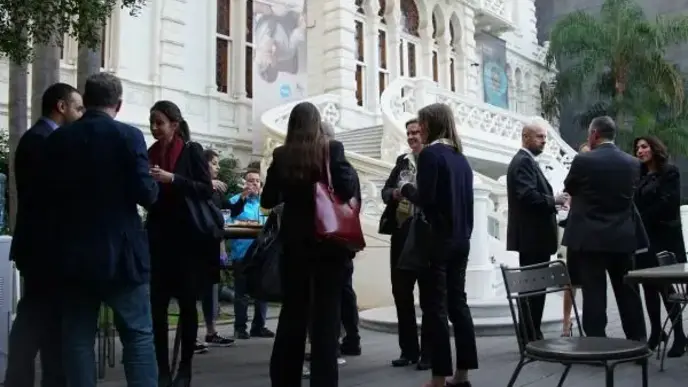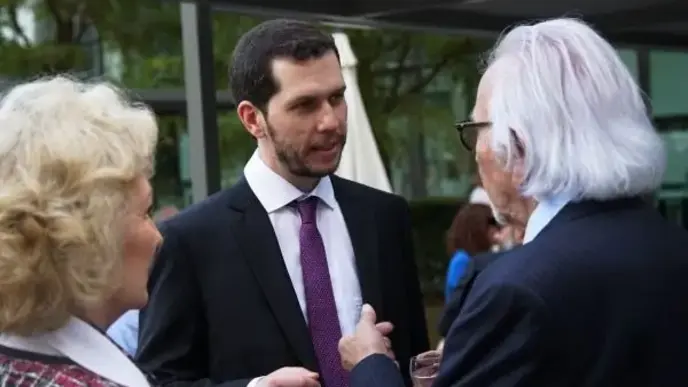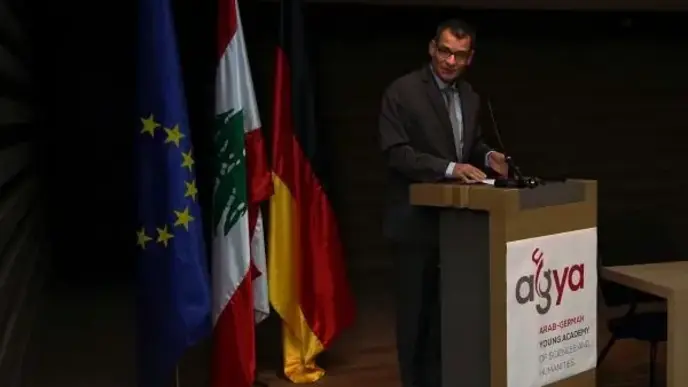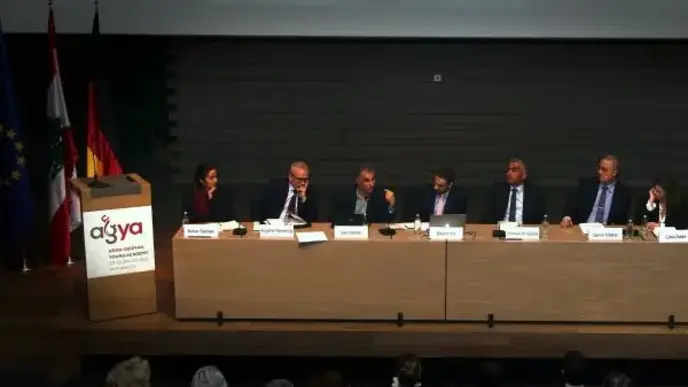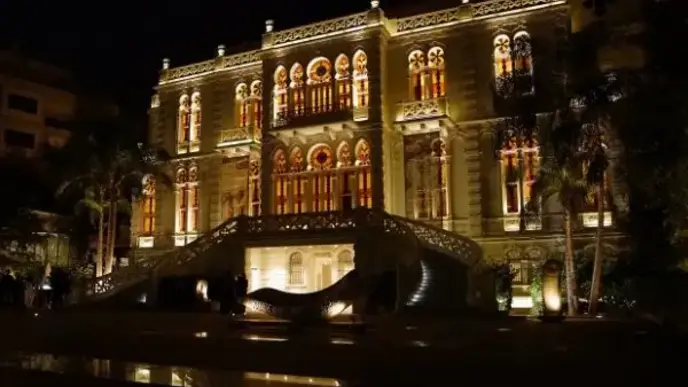International AGYA Symposium 2018 in Beirut
International AGYA Symposium 2018 in Beirut
How can we foster interdisciplinary North-South-South research cooperation? Why is it still so rare? And what are the prospects for an enhanced cooperation in the future? These and other questions were subject of an international AGYA Symposium in Beirut on 5 March 2018.
I have never cooperated as much with fellow Arab researchers as I have since I joined AGYA.
With this statement, AGYA member Prof. Dr. Bilal Orfali opened the discussion on ‘Chances and Challenges of Interdisciplinary North-South-South Cooperation’ of the international AGYA Symposium on 5 March 2018 in Beirut.
Why is inner Arab cooperation still so rare?
The lively panel debate between high-ranking members of Lebanese universities as well as German and Arab research organizations thus immediately started with a compelling topic: why is inner Arab cooperation still so rare? And why is it often instigated in the framework of exchanges with northern partners, instead of being driven by Arab researchers alone? A lack of regional funding institutions and limited inner regional mobility due to visa regulations were identified among the major challenges. Panellists, however, also pointed to what they called the ‘Gulf effect’: in recent years, the Arab Gulf countries emerged as players in international academia and thereby started to increase intra-regional cooperation. Although, as Professor Sari Hanafi (American University of Beirut, AUB) indicated, until now, Gulf countries still serve as stepping stones for future careers in renowned northern universities.
Is interdisciplinary cooperation still difficult to promote or might it even be the norm today?
Interdisciplinary cooperation was the second major topic for the panel. Here, the debate became more controversial: is interdisciplinary cooperation still difficult to promote or might it even be the norm today? As Professor Matar (Lebanese German University, LGU) claimed, at least among the natural sciences ‘you cannot really distinguish any more between physics, chemistry and biology’ today. Professor Carla Eddé (Université Saint Joseph, USJ) in turn pointed to the common exchange of concepts and ideas among social sciences and humanities. At the same time, panellists highlighted the difficulty of finding publishers for truly interdisciplinary work. While there are interdisciplinary journals, for example, many have lower impact factors as the pertinent journals within the disciplines. The discussion also revealed that research transgressing the boundary between natural sciences and humanities or social sciences still needs strengthening. And it is particularly this form of interdisciplinary research cooperation, which is needed to solve complex global problems such as finite resources or climate change. As Bahar Sayyas (German Academic Exchange Service, DAAD) emphasised: ‘real life problems don’t wait for a mathematician or physicist to solve them. Real life problems inspire us to use an interdisciplinary approach.’ The need to tackle common problems will thus continue to foster the desire for transnational interdisciplinary research cooperation.
The international AGYA Symposium aimed at identifying tangible solutions to strengthen Arab-Arab and Arab-German interdisciplinary cooperation. It took place at the Sursock Museum in Beirut on 5 March 2018 and was organised under the patronage of the German Ambassador to Lebanon, H.E. Martin Huth, who commended AGYA for its successful academic exchange and facilitation of interdisciplinary research cooperation in his welcome speech. Before the panel discussion, Dr. Zeina Hobaika, member of the AGYA Steering Committee, had presented AGYA and its work, and Ms. Susanne Ruppert-Elias of the German Project Management Agency PT DLR, representing the German Federal Ministry of Education and Research (BMBF), had offered a comprehensive overview over the German research landscape, joint programs with the Arab world, and possibilities for Lebanon to strengthen its research cooperation.
The symposium was followed by a networking reception that offered participants an opportunity to immediately put the theoretical deliberations into practice by networking with other scholars and representatives of universities and research institutions. The event was organised by AGYA’s Lebanese members Tamirace Fakhoury (Lebanese American University, LAU), Zeina Hobaika (USJ) and Bilal Orfali (AUB), together with German member Jan Busse (Universität der Bundeswehr München, UniBW Munich). Special thanks go to the Lebanese German University for helping realise this event as an academic partner.
Date and Venue
5 March 2018
Sursock Museum, Beirut, Lebanon
Pictures by AGYA/Adrian Hartrick
Program 'Chances and Challenges of Interdisciplinary Research Cooperation'
15h00 Welcome Coffee at Museum Resto
15h15 Opening Ceremony and Keynote Speech
Prof. Dr. Zeina Hobaika (Member of the AGYA Steering Committee, Assistant Professort at the Faculty of Science, Université Sain Joseph)
H.E. Martin Huth (Ambassador of Germany to Lebanon)
Ms. Susanne Ruppert-Elias (Representative of the German Federal Ministry of Education and Research (BMBF))
16h00 Panel Discussion: Challenges of Interdisciplinary North-South-South Cooperation
Prof. Dr. Carla Eddé (Vice President for International Relations, Université Saint Joseph), Prof. Dr. Sari Hanafi (Professor of Sociology, American University of Beirut), Prof. Dr. Samir Matar (President of the Lebanese German University), Prof. Dr. Ahmad Al-Qaisia (Director of the Arab Council for Training Students or Arab Universities), Ms. Bahar Sayyas (Director of the DAAD Information Center in Lebanon),
Prof. Dr. Eugene Sensenig (Co-Founder of the Academic Forum Beirut-Berlin, Professor at Notre Dame University – Louaize)
Moderator: Prof. Dr. Bilal Orfali (AGYA member, Associate Professor for Arabic and Islamic Studies, American University of Beirut)
17h30 Dinner Reception at the Sursock Museum Resto
